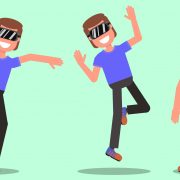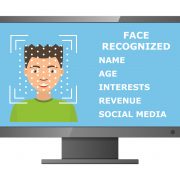In 1944, economist philosopher F.A. Hayek published his book The Road to Serfdom. The pages of this classic work warn of the dangers our civilization is sure to meet if we continued to subscribe to collectivist ideologies, both in economics and politics.
And while the book issues an ominous warning to its readers, it also ensures that they are not too late to choose a different path. If we can learn from history then we are not doomed to repeat it.
Sometimes the greatest advice lies in failure. And by recognizing how something has gone wrong, we can avoid making the same mistake in the future. This is, perhaps, one of the most useful ways to look at Hayek’s book. By using the book as a warning, we can alter the course of history.
So let us pretend for a moment that we find ourselves at a fork in the road and instead of choosing the path of servitude, we followed the road to individualism. And on this path, individualized education is of the utmost importance.
Against the Individual
In Road to Serfdom, Hayek touches a great deal on how compulsory education has contributed to the destruction of liberty. Today’s public schools are not designed for the individual to thrive. Instead, individuality is stripped in favor of the collective and children are routinely taught that their value is derived from how they benefit the group.
Instead of individualized learning methods, public schools offer a one-size-fits-all model. If your child does not thrive under the state-sanctioned methods, that is too bad. Public schools do not have to cater to market demand because taxpayers are forced to fund them regardless quality.
But what if instead of herding children into large buildings like livestock, chaperoning them from one task to another, we tried a different approach to education. What if instead of one-size-fits-all education there were open-sourced resources available. What if instead of teaching children what to think, we focused instead on teaching them how to think.
As hard as it is to imagine this is possible given the current state of our education system, the free market is already providing what education consumers are looking for, because unlike the government, the market responds to demand, rather than state mandates.
The Internet
Knowledge has never been as readily accessible as it is today. While education used to be reserved only to those who held a certain status or wealth, that is no longer the case. Sites like Khan Academy exist to teach you anything you want to learn from math and science to coding and blockchain basics.
“Google Courses” is another platform that allows education to be open-sourced and available to those who are interested. There are even Ivy League schools that are now uploading course syllabi and making it available to all.
But even aside from traditional education subjects like math or science, Youtube is providing other types of education as well. Whether you want to learn how to play the guitar, dance, or sew there are hundreds of options waiting for you on YouTube.
The overall goal of education is supposed to help children prepare for their future. But the free market is filled with opportunities for all sorts of different skills. It seems silly to limit children’s exposure only to math, reading, and science when music or other trade skills may be how they choose to create value in the market in the future.
However, Youtube also has many traditional educational resources. Some professors have even opted to record and upload course lectures online, giving the public the same access to these as those paying to take the college course.
Access to all these different educational opportunities is enabling individuals to find the model that best suits them. And when students are put in an environment where they are free to thrive, they usually do.













